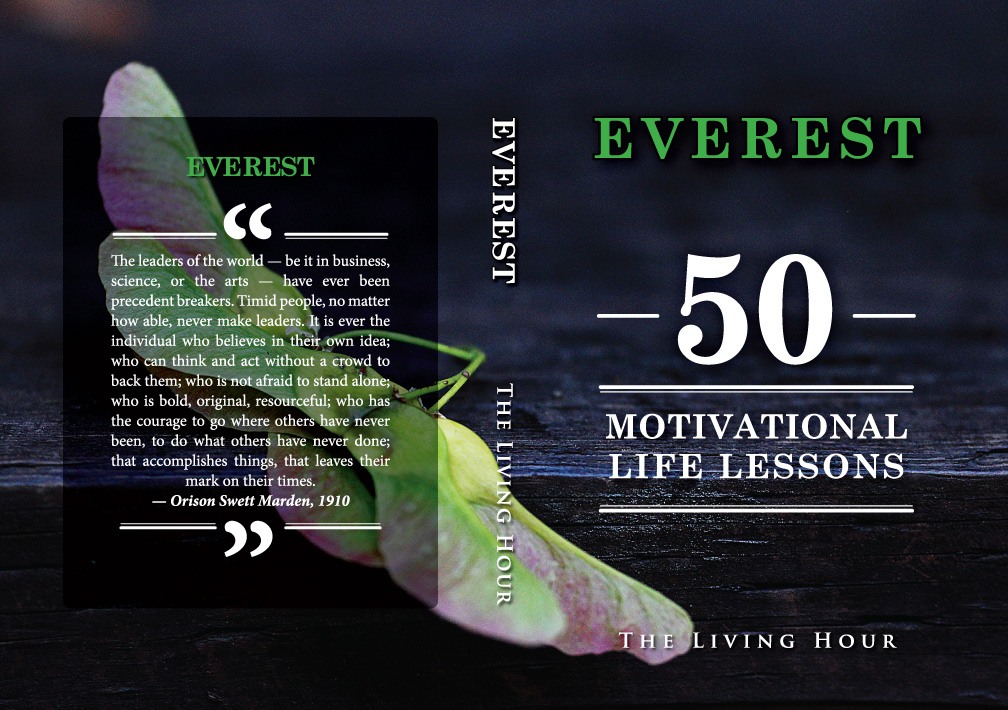03 May College vs. The School of Life | Inspirational Podcasts
Welcome to the Inspirational Living podcast. If you have been enjoying our podcast, we would be much obliged if you could help us spread the word by sharing one of our podcasts on your Facebook page, LinkedIn, or Twitter. Or the old-fashioned way of mentioning us to your friends when hanging out together. Thanks in advance.
Now, on to today’s reading, which was edited and adapted from “The School of Life” by Henry Van Dyke, published in 1905.
Life itself is the great school. Facts are teachers. Experiences are lessons. Friends are guides. Work is a master. Love is an interpreter. Teaching itself is a method of learning. Joy carries a divining rod and discovers fountains. Sorrow is an astronomer and shows us the stars. What I have lived I really know, and what I really know I partly own; and so beginning with what I know and what I own, I move through my curriculum, elective and required, gaining nothing but what I learn, at once instructed by every duty and every pleasure.
It is a mistake to say, “Today education ends, tomorrow life begins.” The process is continuous: the idea turns into the thought, the thought into the action, the action into the character. When the mulberry seed falls into the ground and germinates, it begins to be transformed into silk.
This view of life as a process of education was held by the Greeks and the Hebrews — the two races in whose deep hearts the stream of Western progress takes its rise, the two great races whose energy of spirit and strength of self-restraint have kept the modern world afloat. For the Greeks, the dominant idea was the unfolding of reason, the clarifying of the powers of thought and imagination. The ideal person was one who saw things as they are, and understood their nature, and felt beauty, and followed truth.
For the Hebrews, a heavier stress was place upon the concept of righteousness. The foundations of their school were the tablets on which the divine laws, “Thou shalt” and “Thou shalt not,” were inscribed. The ideal of Hebrew education was the power to distinguish between good and evil, and the will to choose the good, and the strength to stand by it.
Thus these two great races of antiquity, alike in their apprehension of existence from the standpoint of the soul, worked out their thought of vital education, along the lines of different temperaments, to noble results.
Reason and Righteousness: what more could the process of life do to justify itself, than to unfold these two splendid flowers on the tree of our humanity? What third idea was there left to conceive, and cherish, and bring to blossom and fruition? There was only one — the idea of Service. Too often the sweet reasonableness of the Greek ideal tended to foster an intellectual isolation; too much the strenuous righteousness of the Hebrew ideal gave shelter to the microbe of hypocrisy.
A new Divine Teacher was required to perceive that righteousness is not reasonable (and reason is not righteous), unless they are both communicable and serviceable — that the highest result of our human experience is to bring forth better men and women, able and willing to give of that which makes them better to the world in which they live. In other words, the ultimate lesson that the school of life is to bring out includes — Reason, Righteousness, and Service.
But if life itself be the school, what becomes of our colleges and universities? They are, or they ought to be, simply preparatory institutions to fit us to go on with our education. Not what do they teach, but how do they prepare us to learn — that is the question. I measure a college not by the height of its towers, nor by the length of its examination papers, nor by the pride of its professors, but chiefly by their graduates’ ability to engage in a lifetime of learning. I do not ask, “Where did you leave off?” but “Are you ready to go on?”
READ THE ENTIRE ESSAY IN EVEREST: 50 MOTIVATIONAL LIFE LESSONS

